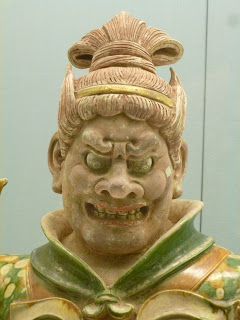Faces
My friend Dominic is an interesting, curious person. As an advanced student in the Japanese language, he reads a lot of Japanese books and magazines. One time he shared with me an article he read.
The author was waiting for a train at the subway station. As she was wandering around on the platform, she saw an old friend she had not seen for a long time. From a distance, the friend looked weary and unhappy -- her head was down, and the corners of her mouth were squeezed tight. The author could not help feeling concerned for her friend. As the friend turned to face her general direction, she decided to walk up to greet her.
The moment the friend saw the author, she waved and broke out a smile. The two old friends started catching up by sharing their news. To the author's surprise, her friend had been actually doing quite well: She had a job she liked and was married to someone she loved. They had a very nice home nearby. Her parents and other family members were all in good health. Everything was fine. There really was not a thing to complain about.
After they said goodbye, the author pondered about what she thought she saw and the reality as it was told by the friend.
Her friend looked really upset until she saw her. The facial expressions of her friend before and after their encounter were such stark contrast that it was hard to believe they belonged to the same person. So, which one is real?
When the author got home, she stood in front of a mirror to take a good look at herself. But then, she noticed that, the moment she started checking herself out, even her own face changed. It was not a conscious move on her part. It was almost as if her face had a mind of its own and decided to present a certain image to its viewer.
Thinking about the story, I went to look at myself in the mirror. Sure enough, my face changed for me to look at it, too. I could not stop it. It is almost impossible to have a look at myself without interfering with what was there before.
Since we are little children, we are taught to smile in front of a camera. Adults and children alike, everybody wants a happy picture for themselves, not a pouty, crying face as a snapshot of history. Unhappy photos are not acceptable. Children born in the digital age are very adept at posing for pictures. Even babies know to smile in the cutest way the moment they sense that a cell phone is pointing their way.
The face of the author's friend, seemingly, was not a good reflection of what was going on in her life. Yet, her cheerful face might just be a polite, social face. Photographs contain mostly pre-programmed smiles. And then, even if one tries, it is hard to see our genuine reflection from a mirror. Do we ever get to see our true selves?
And you, what is your true face?



Comments
Post a Comment